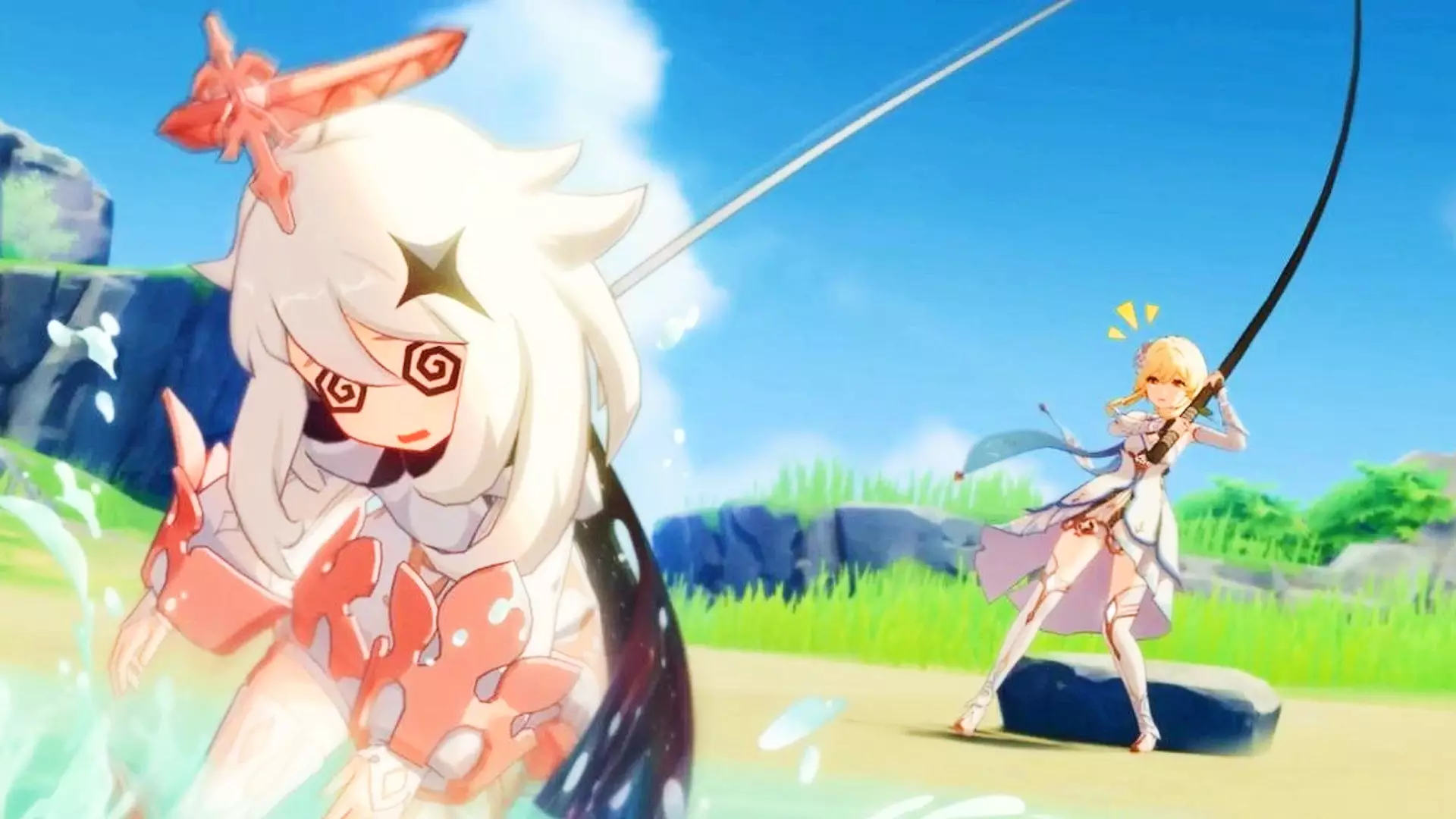With the rollout of Genshin Impact’s update 5.7, fans are buzzing with renewed excitement. While the newly introduced 5-star character, Skirk, rightly attracts attention for his gameplay implications, it’s the revision of two longstanding characters—Paimon and Keqing—that has become the centerpiece of heated discussions. The recasting of these characters, particularly the voice of Paimon, marks a significant turning point for the game. After nearly five years in the spotlight, the voice actors behind these iconic figures have transitioned, which not only changes their auditory presence but also invites a reexamination of how their personas resonate with players.
Genshin Impact has masterfully engaged its audience by blending a rich narrative with a vast world, and both Paimon and Keqing personify this synergy. Paimon has acted as the unofficial mascot; her role is not merely as a companion but as the voice of commentary, guidance, and sometimes comic relief. This repositioning of such an integral character in this beloved game is no small feat, and it suggests a willingness to adapt and evolve alongside its player base.
The Impact of Voice on Character Identity
In the realm of character-driven gameplay, voice acting plays a crucial role in shaping perception. Paimon’s new voice, which has been described by many as softer and deeper compared to her previous incarnation, signals a clear intention to shift how she is perceived within the game’s universe. Corina Boettger, who voiced Paimon until this update, faced significant backlash related to her comments on voice actor strikes, ultimately leading to her replacement. While the reasons behind this change are intricate, the reception of voice actors is crucial in fostering a sense of community among gamers.
The contrast between Paimon’s original and revamped voice has already sparked discussions among players, with many perceiving this shift as a return to form—evoking nostalgia for Paimon’s earlier portrayal. Some players even argue that this new rendition closely mirrors the character’s charm as perceived in the game’s original language versions. These observations highlight a profound sentiment: that voice and performance are essential threads in the tapestry of character affection.
Community Reactions: A Blend of Hope and Skepticism
As with many changes in popular gaming titles, reactions within the Genshin community have been mixed, with Paimon’s recast igniting dialogue about preferences among the varied voice performances across different languages. A substantial portion of players expressed positive sentiments towards the recasting, with many feeling a sense of relief that Paimon’s tone is more aligned with their original feelings upon diving into Teyvat. The general consensus is that she is likable again, lending credence to the argument that a character’s voice is pivotal in crafting emotional connections.
That said, not all responses have been entirely favorable or uncritical. Players who felt an attachment to Boettger’s portrayal have expressed discontent, highlighting the sometimes fickle nature of fandoms. While nostalgia plays a huge role in these dynamics, fans also seem eager to embrace characters that align more closely with the tonal expectations set by international narratives and linguistic choices.
A New Era of Expectations and Resilience
As HoYoverse prepares to roll out the updated voice lines throughout the game, fans can only speculate about the future direction of Paimon and Keqing. This change is more than just a voice shift; it represents a commitment to refine and improve player experiences with beloved characters. In the realm of online gaming communities, where vocal expressions of dissidence and approval coexist, it will be fascinating to observe how this recasting impacts broader conversations about inclusivity among voice actors and ethical considerations within the gaming industry.
The shift in characters with such significant roles invites us to ponder the broader implications of artistry in video games. In a landscape where player loyalty hinges on emotional ties to characters, Genshin Impact’s innovative steps in updating these roles could breathe new life into old narratives. As Arknights and Fire Emblem have demonstrated, character voice acting is not merely supplementary; it is central to engagement, expression, and ultimately, the love for a gaming world that continuously evolves.

